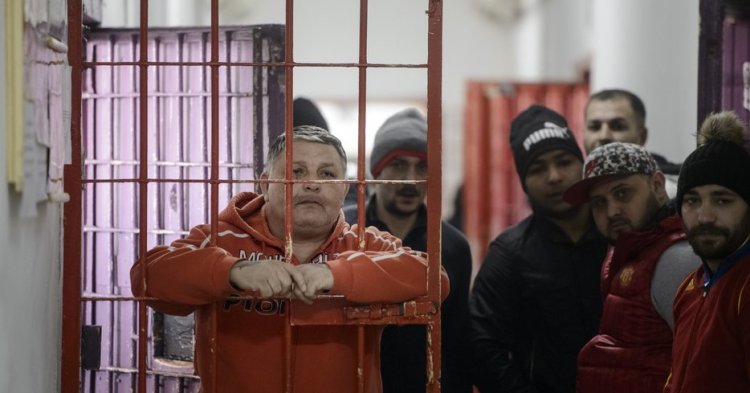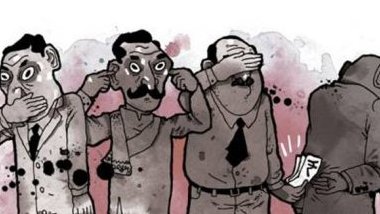In between Jordan and Cuba, with a score of 48 points on the Corruption Perception Index, that’s where Romania was positioned according to the statistics from the year 2016.
The corruption problems in Romania are well known not only for the citizens of the country but also on an international level. The European Commission has often noted in the anti-corruption report that petty and political corruption is still a significant problem in Romania, regardless of the little progress that was made when it comes to fighting it. The problem is well known by the people and the political and justice system.
But how deep do the roots of corruption go?
A proper answer would be: deeper than anyone would think. It is not only a problem of politicians putting their friends and families in positions of power or giving each other state-funded contracts. The corruption goes deep enough to affect even the smallest local public offices. You might get lucky and only have to bring a pack of coffee or a box of chocolates to get the basic services to which you are entitled freely. Or, in less fortunate cases, you have to give a sum of money to not be made to wait for the whole day - or several days - to simply hand in some documents.
The messy bureaucracy and the corruption go hand in hand. In the 28 years since the collapse of communism, Romania didn’t achieve a lot of progress in many fields, unfortunately. This is a problem which we could connect with the fact that the political class since the ‘90s and until nowadays is made up of members of the former communist nomenklatura, the so-called businessmen who knew to take advantage of the transitioning economy of the country in order to commit thefts and whoever else gravitates in their circles.
With a political class such as this (with its very few exceptions) the governments that came since then were bound to not perform well and to place the personal interests of their party members and leaders above the well being of the citizens and the economic, social and technological progress of the country. And it seems to get worse with every year.
Not only does the general situation in Romania lack improvement, but the people themselves seem to lose hope for any sort of positive progress. This is obvious not only by the huge amount of immigrants (over three million just in Western Europe) but also by the general state of mind of the country when it comes to politics. At the parliamentary elections in December 2016, only about 31% of the population voted.
The government barely started its activity when it had already created a controversy in January when a governmental emergency ordinance had been approved around 10-11 PM. This way of changing laws about such a sensitive topic as justice certainly didn’t look good to the citizens. The changes that came with it looked as if they were specially introduced to help the head of the governing party, Liviu Dragnea, in the lawsuits against him. And it seems this was the last drop for the public opinion.
Back in January/February 2017, pictures of the anti-corruption protests in Romania went viral on the internet and many international sites had written articles about it, bringing attention to the events happening in Romania. After two weeks and half of the protests, the Grindeanu Cabinet adopted a new ordinance bill repealing the original bill.
Fast forward to November 2017 and the streets of the big cities in Romania are once again flooded with protesters. And while this time it was not caused solely by justice-related problems – people aren’t happy with the changes in the fiscal code either – the main theme of the slogans, chants, and banners was still connected to that. There were messages such as ‘We don’t want to be led my thieves’, ‘In a democracy, the thieves are in prison’ and ‘Justice, not corruption.’
What justice related problem propped the protests this time?
Besides the general corruption in the ranks of senior dignitaries, what troubles people this time was how many convicted felons were set free through the system of compensatory benefits. These benefits were installed as a solution to the overcrowdedness in the Romanian prisons – a problem which had led to many cases against the country at the European Court of Human Rights.
The law worked as it follows: for every 30 days of improper conditions in the jail, each convicted felon gets six days off from the overall prison time .
The law itself is already questionable, but the information released by the National Agency of Prisons certainly riled people up - and for a good reason. According to it, over 1,200 convicted felons were freed because of the compensatory benefits , no matter the type of crime they committed. It is estimated that around 8,000 prisoners will be freed in the first year of use of this law.
To add fuel to the fire, it had been reported that there had been many mistakes in the process of applying the law and a lot of wrong detainees were set free. The problems in the jails in Romania, the inhuman conditions, and the overcrowdedness are known at a European level and the country was asked to come with a solution many times. But is setting criminals free, no matter their crime, the right way to do it?
It seems that the Romanian government thinks so.
So what is awaiting for the country in the future?
No one is quite sure. The corruption is too deeply rooted and it would take a long time and a complete change of the political class as well as the public servants for a major change to happen. Meanwhile, it seems the only thing that keeps the government from doing whatever they wish is the fact that the citizens, especially the youth, using their democratic right to protest and to raise awareness of the situation in the country.
One can only hope Romania won’t follow the steps of other countries towards some sort of autocracy or oligarchy, and that the people will keep fighting against corruption.



Follow the comments: |
|
